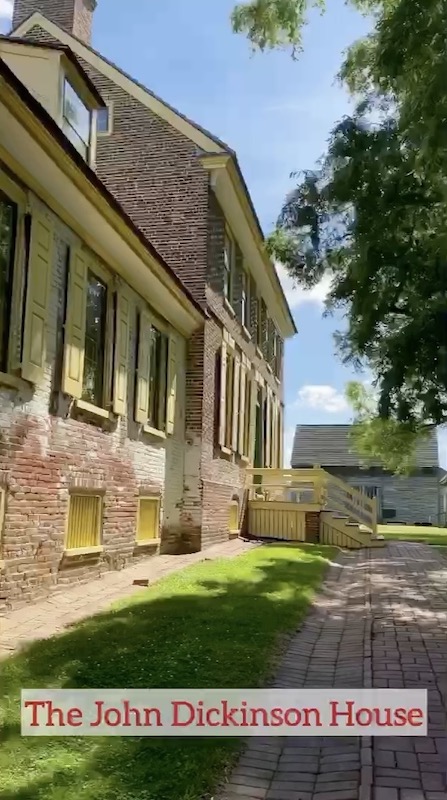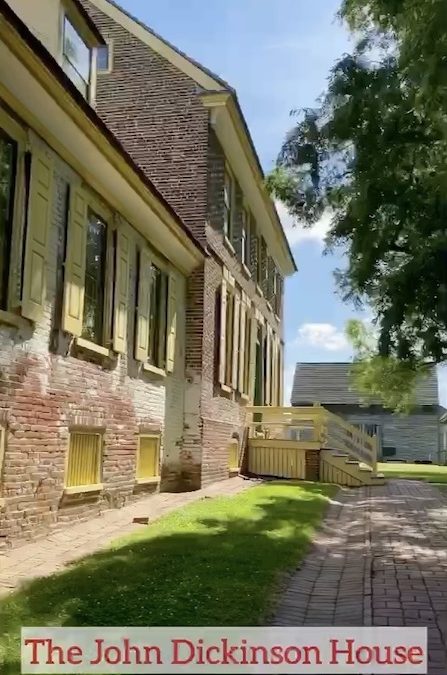NHL Nomination Update – John Dickinson Plantation
Written by: Kayla Heard
My name is Kayla Heard, and I am a CRDIP Historian intern with Region 1 of the National Park Service. This summer, I am working with NPS to update the National Historic Landmark documentation for the John Dickinson Plantation in Dover, Delaware. My research focuses on the African descended communities’ social and economic history, including enslaved, indentured, and tenant individuals.
During my first two weeks, I visited the site to meet the staff and tour the grounds. During this tour, I learned more about the mansion, John Dickinson, and life on the plantation. The visit included a visitation at the African Burial Ground, which was discovered in March 2021 after two years of archeological surveying. I was impressed with how the site is managed and maintained and with the current projects.

I began looking through primary and secondary source documents in the Delaware Public Archives on the African descended communities at Dickinson.
During my second week, I attended the Friends of the John Dickinson House annual meeting, where I met several organization members and Governor Carney of Delaware. We discussed current projects at the site and my research interests for the NHL nomination update. They appeared to be excited about my research angle, and many stated that they are looking forward to learning more about the African descended communities from my research.
After two weeks of learning more about the site and enslavement in Delaware, I drafted my primary research interests. I am interested in demographics, religion and culture, and acts of resistance at Dickinson. I want to know where African descended individuals came from and how many generations their families were enslaved in the Atlantic world. I also want to know what role religion played in their everyday lives and how they maintained their African spirituality and religious practices. I am also interested in other cultural practices specific to the African descended communities, such as the maintenance of kinship ties and entertainment. The John Dickinson Plantation was connected with the Underground Rail Road. There are also a few known instances of fugitivity from those enslaved by Dickinson. I am interested in how African descended people, especially those enslaved, resisted bondage through fugitivity, truancy, protest, and other forms of resistance.
I am excited about the plans for this nomination and my role as a historian. I believe the history of America’s earliest African descended communities is essential to American history.

This summer, ACE is partnering with the National Park Service to update National Historic Landmark documentation for the John Dickinson Plantation. This update will reflect the social and economic history of the enslaved, free Black community, and indentured servants at Dickinson.
Interested in learning more about American Conservation Experience, including our programs – Conservation Crew and Emerging Professionals in Conservation? If so, click here to check out our resources, media, and to apply online.
